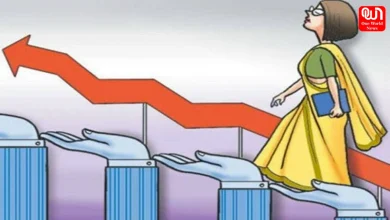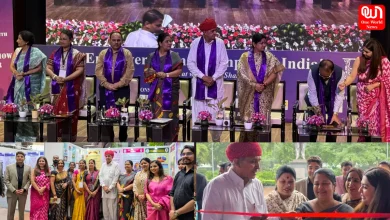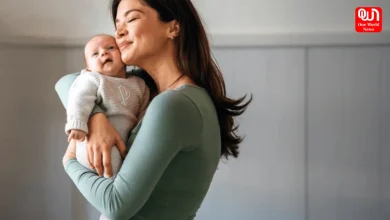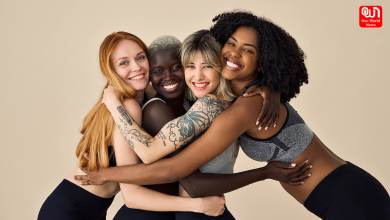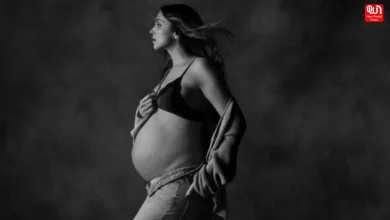Meet Srishti Bose, A visual artist and co-founder of an internet art gallery, The Unography Mag

“For me, what is more interesting is the part of us that seeks to define art, not just to ourselves but to a potential onlooker.” – Srishti Bose
“A picture is a poem without words” – Quintus Horatius Flaccus.
Well, that’s our first impression of Srishti’s work on Instagram. Her frames speak like poetry depicting meaning. Srishti calls herself an artist residing on the internet, but more importantly a radical-intersectional-feminist. She writes, photographs, and curates for multiple online journals. “I believe in neutrals, poetry, and above all, that everything is beautiful with the right light in the right place.”- she says.
Srishti is also the founder of Unography Magazine, an internet art gallery for art enthusiasts.
We had a small chat with Srishti and here is what she said –
What is your first impression of yourself?
Interesting. I suppose our very first impression of ourselves rests in a subconscious belief system influenced by cultural frameworks. A while back, I came across Bruce Hood’s self-illusion theory which stated that the self is really just a spectacle of our minds and that we are fundamentally just a bunch of atoms. He proved through some experiments that the idea of identities being these intangible, in-exchangeable things is false and I still feel unsettled by it.
What is the idea behind the Unography Mag? How did the idea come to you and what is that one thing that makes it really special?
Unography Magazine is a shared space for the people who wander the periphery of what it means to be an artist every single day. We are a curator collective, running something akin to an art gallery on the internet, but not quite. This magazine exists to make accessible- not just diverse art, but the ability to understand it. We want people to consume art, interpret it and season their imagination upon it. You will find that our work is embedded in concepts and scenarios that incorporate not just the story but its exhibition space itself. I and my partner Dhruv co-founded this space to create opportunities and context for contemporary art. Needless to say, this magazine is intended to be collaborative and supportive of all art forms across any medium.

What does your art mean to you?
What is more interesting to me is the part of us that seeks to define art, not just to ourselves but to a potential onlooker. We want a definition we can claim to identify but we also want an underlying definition more personal to us, because looking for a personal definition of art implies a desire to define the ungraspable phenomenon of abstract painting, wordy prose, and twisted poetry. It means something to me that in one corner of the world, someone could create something beautiful, and in another, someone else could break it down. It means something to me that sometimes, some work of art remains unfinished like a broken romance. The perilous allure of sounds and colours and words and feelings and bodies that make up the spectrum of art, this quiet/unquiet immersion in desire and fascination – all of it is an art to me.
To answer your question, the meaning of art evolves with age. A few years ago, I remember thinking about art as a mode of self-expression and merely that. Back then, I wasn’t paying attention to how learned and influenced one’s sense of aesthetics can be, underexposure (limited or focused), privilege (or lack thereof), biases (ingrained or reinforced), obscurity in sources of information … or just plain old narrative building by institutional frameworks. Now that I revisit this question, art feels more like an instrument of exploration, which very quickly turns into haunting and obsession. This dynamism is pivotal to me, this dynamism is art.
If you are asked to give some advice to the creators out there, what will be that?
Honestly, I don’t feel like my advice is warranted, I am pretty much still learning and would in fact want to receive some quality advice myself! However, here are a few things I have experienced and can vouch for:
One, if it doesn’t pay you, don’t do it. It’s not worth it in the long run. The hardest jobs I ever worked paid me the least – this is not an emotional quandary- it’s a systemic problem of exploiting vulnerable people. If you find yourself monetarily or professionally vulnerable, know that the option of saying no to exploitative projects is in fact your biggest capital.
Two, you will often find people quoting examples of how much worse it could be’ to downplay your expectations and replace it with a mindset that underscores or second guesses your own talent, capability and prospects. In these times, rebel internally and DO NOT DILUTE YOUR EXPECTATIONS. Call me naive but I think there is enough space in the world for all of our successes. You will meet your expectations in time, so don’t go silent on them.
Three, protect and conserve your physical, material, and emotional labour.
Four, and most importantly, art is political and personal. If you’re a shitty person, we don’t want your art.
Five, invest in your skills and instruments (laptops, cameras, raw material) of your skill – it pays off in the long run.
Have a news story, an interesting write-up or simply a suggestion? Write to us at info@oneworldnews.com

